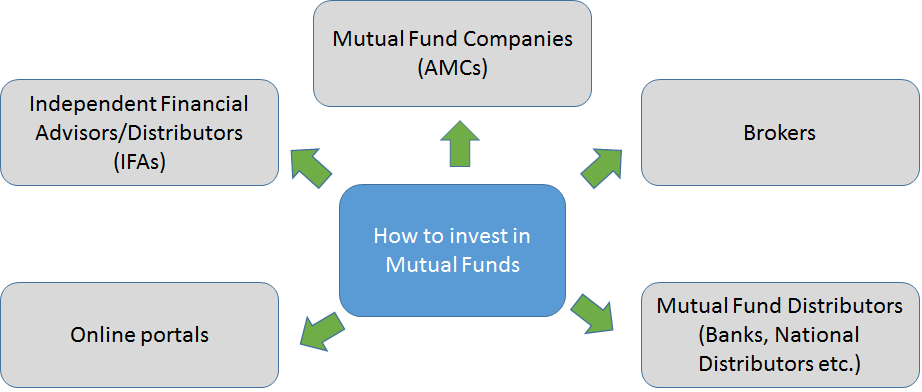
Table of Contents
- What Are Green and ESG Mutual Funds?
- Key Drivers Behind the Growth of ESG Investing
- Best Performing ESG Mutual Funds 2025
- ESG Mutual Funds Vs. Traditional Equity Mutual Fund - Performance
- Benefits of Investing in Green and ESG Mutual Funds
- Challenges and Risks
- How to Evaluate ESG Mutual Funds
- Conclusion: Investing for a Better Future
Green and ESG Mutual Funds: Investing with a Conscience
As environmental concerns, social responsibility, and corporate governance (ESG) factors gain global attention, investors are increasingly seeking ways to align their portfolios with their values. Green and ESG Mutual Funds provide an avenue to invest responsibly while potentially achieving competitive returns. These funds focus on sustainability, ethical governance, and positive societal impact, making them a compelling option for those who wish to invest with a conscience.

In this article, we’ll explore the rise of Green and ESG mutual funds, their Underlying principles, the benefits and challenges of Investing, and examples of their performance and impact.
What Are Green and ESG Mutual Funds?
Green Mutual Funds
These funds focus primarily on companies involved in environmentally sustainable activities, such as renewable energy, clean technology, water conservation, and waste management. They aim to combat climate change and reduce environmental harm.
ESG Mutual Funds
ESG funds invest in companies that meet specific criteria related to Environmental, Social, and Governance factors. This includes companies with sustainable environmental practices, equitable labour policies, and strong corporate governance structures. These funds often exclude sectors like fossil fuels, tobacco, and weapons, while favouring industries such as green energy, healthcare, and technology.
Key Drivers Behind the Growth of ESG Investing
Global Climate Initiatives: Agreements like the Paris Accord have prompted governments and corporations to adopt sustainability goals.
Changing investor Preferences: Younger investors, particularly millennials and Gen Z, are prioritising ethical investments, with 76% of millennials expressing interest in ESG investing according to recent studies.
Corporate Accountability: Companies are increasingly required to disclose ESG metrics, making it easier for fund managers to identify sustainable businesses.
Regulatory Support: In the UK, the Financial Conduct Authority (FCA) has introduced guidelines to ensure transparency in ESG investments, enhancing investor confidence.
Talk to our investment specialist
Best Performing ESG Mutual Funds 2025
| Fund Name | Fund Age | 1-Year Return | 3-Year Return | 5-Year Return | Benchmark | Minimum SIP (₹) | Expense Ratio |
|---|---|---|---|---|---|---|---|
| SBI Magnum Equity ESG Fund | 2013 | 27.51% | 13.59% | 16.82% | Nifty 100 ESG Index | 500 | 1.3% |
| ICICI Prudential ESG Fund | 2020 | 35.34% | 17.76% | N/A | Nifty 100 ESG Index | 1000 | 1.0% |
| Kotak ESG Opportunities Fund | 2019 | 26.89% | 13.59% | N/A | Nifty 100 ESG Leaders Index | 1000 | 1.2% |
| Axis ESG Equity Fund | 2019 | 28.36% | 10.67% | N/A | Nifty 100 ESG Index | 1000 | 1.5% |
| Aditya Birla Sun Life ESG Fund | 2020 | 32.58% | 11.75% | N/A | Nifty 100 ESG Leaders Index | 1000 | 1.5% |
| Quantum India ESG Equity Fund | 2019 | 27.36% | 13.99% | 18.76% | S&P BSE 100 ESG Index | 500 | 1.5% |
Insights
- Performance Variability: Among the funds, ICICI Prudential ESG Fund and SBI Magnum ESG Fund have shown strong 1-year performance. However, the 3-year and 5-year returns reveal moderate growth, aligning with the Nifty 100 ESG Index benchmarks.
- Fund Age and Longevity: Older funds like SBI Magnum (since 2013) exhibit consistent returns over a 5-year period, while newer funds like ICICI Prudential and Kotak have not yet established a 5-year history.
- SIP Accessibility: Most funds have a minimum SIP requirement between ₹500 and ₹1000, making them accessible for small investors.
These funds offer investors an opportunity to align their portfolios with sustainability goals while achieving competitive returns. The data also reflects the growing adoption of ESG criteria in Indian mutual funds.
ESG Mutual Funds Vs. Traditional Equity Mutual Fund - Performance
Here's the graph comparing the growth of a ₹10 lakh investment in a traditional equity mutual fund (8% return) and a green ESG mutual fund (9.5% return) over five years.

Key Insights from the Graph:
- The ESG fund's higher annual return leads to a noticeable difference in total value by year 5.
- By the end of the 5 years, the ESG fund surpasses the traditional fund by over ₹1 lakh.
This visual emphasises how even a small difference in annual returns can compound into significant gains over time.
Benefits of Investing in Green and ESG Mutual Funds
Potential for Competitive Returns
Studies show that ESG-focused companies often outperform their peers over the long term due to strong governance and risk management.
Portfolio Diversification
ESG funds typically invest in a wide Range of industries, including technology, healthcare, and renewable energy, Offering diversification.
Risk Mitigation
Companies with strong ESG policies are generally better at managing long-term risks such as regulatory changes, environmental disasters, and social backlash.
Alignment with Personal Values
Investors can support causes like climate action, gender equality, and corporate transparency while growing their wealth.
Challenges and Risks
Greenwashing
Some funds may overstate their commitment to ESG principles, a practice known as greenwashing. Investors must scrutinise fund disclosures carefully.
Performance Volatility
ESG funds can be subject to Market Volatility, particularly in sectors like renewable energy, which can experience rapid regulatory changes.
Limited Historical Data
ESG investing is relatively new, so long-term performance data may be limited compared to traditional funds.
Higher Fees
ESG funds may have slightly higher expense ratios due to the additional research required to evaluate companies' ESG credentials.
How to Evaluate ESG Mutual Funds
- ESG Ratings: Look for funds with high ESG scores from rating agencies like MSCI or Sustainalytics.
- Transparency: Check if the fund discloses its methodology for selecting ESG-compliant companies.
- Sector Allocation: Ensure the fund aligns with your ethical priorities, such as renewable energy or social impact.
- Expense Ratio: Compare fees with traditional funds to assess cost-effectiveness.
Conclusion: Investing for a Better Future
Green and ESG mutual funds offer a unique opportunity to generate financial returns while fostering positive change in the world. By investing in companies committed to sustainability, investors can play a part in addressing global challenges like climate change, inequality, and governance issues.
As more data becomes available and regulatory frameworks strengthen, these funds are likely to grow in popularity, offering not only competitive returns but also a chance to align wealth creation with personal values.
Final Thought: In a world where investment choices have broader societal implications, ESG and green mutual funds present a promising path for conscious investors seeking to make a difference without compromising on returns.
All efforts have been made to ensure the information provided here is accurate. However, no guarantees are made regarding correctness of data. Please verify with scheme information document before making any investment.











